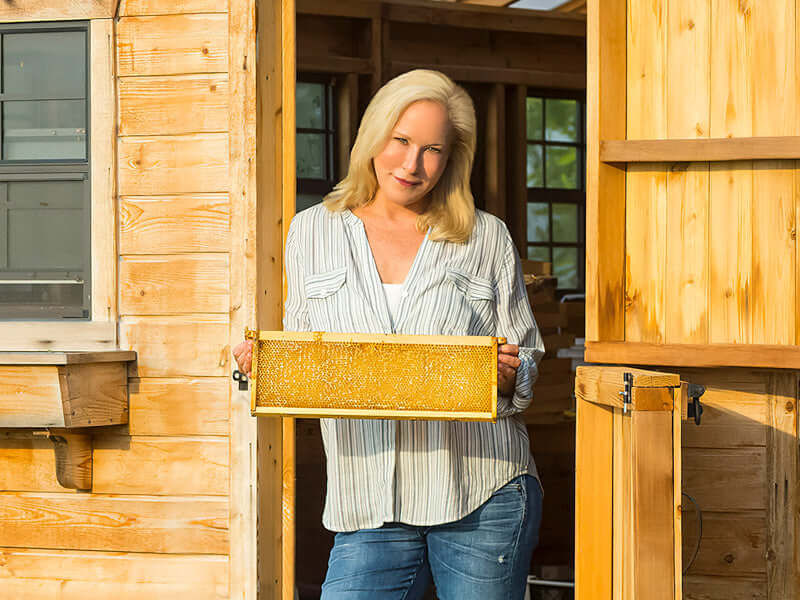Environmental protection stands as one of the most critical global imperatives of our time, uniting people across borders, cultures, and political divides in the shared mission of safeguarding our planet. This commitment is perhaps best exemplified by Earth Day, an annual observance held every April 22nd that has grown from its 1970 origins in the United States to become a worldwide phenomenon engaging over one billion participants across 193 countries. Founded through the visionary efforts of peace activist John McConnell and organized by Denis Hayes, Earth Day has evolved into a powerful catalyst for environmental awareness, policy change, and collective action. The event’s global reach, symbolized by the iconic “Blue Marble” Earth Flag featuring the Apollo 17 photograph, reflects humanity’s growing recognition that protecting our environment is not merely an option but a necessity for ensuring the wellbeing of current and future generations. As environmental challenges continue to mount, Earth Day serves as both a celebration of our planet and a sobering reminder of our responsibility to preserve it through environmental sustainability, sustainable practices, and conscientious stewardship.
Learn all about the importance of honeybees
Understanding the Importance of Environmental Protection
Earth Day is an annual global event celebrated on April 22 that demonstrates support for environmental protection, originating in 1970. Coordinated by EARTHDAY.ORG (formerly Earth Day Network), it now engages over 1 billion people across more than 193 countries worldwide.
- Earth Day is an annual event on April 22 to demonstrate support for environmental protection, first held on April 22, 1970.
- The event is coordinated globally by EARTHDAY.ORG (formerly Earth Day Network) and includes over 1 billion people in more than 193 countries.
- The unofficial Earth Flag was created by John McConnell and features The Blue Marble photograph taken by the crew of Apollo 17.
- The first Earth Day was focused on the United States, but in 1990, Denis Hayes took it international and organized events in 141 nations.
- Earth Day is a key part of the global environmental movement, raising awareness about environmental issues and promoting sustainable development.
- Earth Day was proposed by peace activist John McConnell in 1969.
- Denis Hayes was the National Coordinator for the first Earth Day.

Kara Brown has a beautiful 102 acre Chesterhaven Farm on the Chesapeake Bay where she raises bees
What is Earth Day?
Earth Day is an annual event celebrated on April 22nd, dedicated to promoting environmental protection and raising awareness about the importance of preserving our planet. The first Earth Day was held in 1970, founded by United States Senator Gaylord Nelson in response to the growing concerns about environmental issues. This inaugural event marked a pivotal moment in the environmental movement, bringing together millions of people to advocate for a healthier, more sustainable world.
Today, Earth Day has grown into one of the largest global events, observed by over 1 billion people in more than 193 countries. It serves as a powerful reminder of our collective responsibility to protect the environment and combat climate change. The Environmental Protection Agency (EPA), established in the wake of the first Earth Day, plays a crucial role in promoting environmental protection and addressing climate change. Each year, Earth Day provides an opportunity for individuals, organizations, and governments to come together and take meaningful action to safeguard our planet.
The Earth Day Network, a key partner in promoting Earth Day, works tirelessly to mobilize individuals, organizations, and governments to address pressing environmental issues. One of their notable initiatives is the Canopy Project, which aims to plant 7.8 billion trees by 2025, symbolizing the importance of reforestation in combating climate change and promoting biodiversity.

For every jar of Wildflower Honey we sell, we have a tree planted in Appalachia through One Tree Planted
Earth Day also underscores the importance of climate education and environmental literacy. By fostering a better understanding of environmental issues and the impact of human activities on the planet, Earth Day encourages informed and responsible actions. The United Nations has recognized the significance of Earth Day, designating it as a global event to promote sustainable development and environmental protection.
In the United States, Earth Day is celebrated with a variety of events and activities, including rallies, marches, and community service projects. These events provide an opportunity for individuals to make personal commitments to reduce their carbon footprint and adopt sustainable living practices.
Overall, Earth Day is a vital annual event that calls for collective action to protect the environment, combat climate change, and promote sustainable development. It serves as a rallying point for individuals, organizations, and governments to unite in their efforts to ensure a healthy and sustainable future for all.

Environmental Protection Efforts: The Role of the Environmental Protection Agency (EPA)
Since the inaugural Earth Day catalyzed its creation, the Environmental Protection Agency has stood as America’s foremost guardian of ecological health and sustainability. Committed to its founding mission of protecting both human health and our natural environment, the EPA continues this vital work through multiple channels of engagement and action. Each year, the agency commemorates Earth Day by providing valuable resources, timely information, and meaningful updates that empower citizens to participate in environmental protection. Through its ongoing efforts to combat climate change and promote greater environmental literacy, the EPA remains an essential institution in safeguarding our planet’s wellbeing for current and future generations. Learn more about how the EPA’s mission extends beyond regulation to creating a sustainable vision for Earth’s future.
- The first Earth Day led to the creation of the Environmental Protection Agency in the USA.
- The EPA’s mission is to protect human health and the environment.
- Learn more about EPA’s mission to protect the earth and its future.
- EPA celebrates Earth Day by sharing actions, information, and updates on how to protect the environment.
- The EPA plays a crucial role in combating climate change, promoting environmental literacy, and enforcing environmental regulations.

Learn about how pesticides affect bees
Combating Climate Change
Climate Education: A Key to a Sustainable Future
As our planet faces unprecedented environmental challenges, effective climate education and environmental awareness have emerged as critical foundations for building a sustainable future. By providing comprehensive knowledge about how human activities affect our environment, climate education empowers both individuals and communities to take meaningful action. This educational approach has gained significant recognition on the global stage, with the United Nations highlighting its essential role in achieving broader sustainable development goals. Through well-designed climate education programs, people gain the tools to make informed decisions about their personal carbon footprints and implement practical strategies to minimize their environmental impact. Beyond individual action, the private sector also bears responsibility in this collective effort, with businesses increasingly recognizing their potential to advance climate literacy while simultaneously reducing dependence on fossil fuels.
- Climate education is essential for understanding the impact of human activities on the environment.
- The United Nations emphasizes the importance of climate education in achieving sustainable development.
- Climate education can help individuals make informed decisions about their carbon footprint and reduce their impact on the environment.
- The private sector can also play a role in promoting climate education and reducing fossil fuel consumption.

Ever wonder what bees do in the winter?
Taking Action to Combat Climate Change
Reduce Your Carbon Footprint
Climate change represents one of humanity's greatest challenges, but meaningful solutions begin with individual choices we make every day. By adopting more sustainable transportation habits, embracing energy efficiency in our homes, adjusting our dietary choices, and supporting renewable energy initiatives, each person can contribute to a healthier planet. Transportation choices like public transit and electric vehicles significantly reduce emissions, while simple household practices conserve precious resources. The foods we eat also play a surprising role in our environmental impact, with plant-based options generally requiring fewer resources to produce. Beyond personal choices, supporting broader renewable energy projects harnesses the power of natural resources like wind, water, and sunlight to generate cleaner electricity. Together, these actions create a powerful collective response to climate change that benefits both current and future generations.
- Reduce your carbon footprint by using public transport, carpooling, or driving electric or hybrid vehicles.
- Use energy-efficient appliances and turn off lights, electronics, and taps when not in use.
- Reduce meat consumption and choose plant-based options to reduce greenhouse gas emissions.
- Support renewable energy projects and invest in carbon offsetting initiatives.
- Electricity can be made from renewable sources like wind, water, and sun.

Renewable energy sources are essential for reducing our reliance on fossil fuels and combating climate change. Solar energy, harnessed through solar panels, is one of the most popular renewable energy sources. Wind energy, captured by wind turbines, and hydro energy, generated by hydroelectric power plants, are also significant contributors to the renewable energy mix. Additionally, geothermal energy, which is produced by geothermal power plants, offers a sustainable way to generate electricity.
The Environmental Protection Agency (EPA) actively promotes the use of renewable energy sources to reduce our dependence on fossil fuels. By supporting renewable energy projects, we can significantly reduce greenhouse gas emissions and mitigate the effects of climate change. The Earth Day Network’s Canopy Project also aims to promote reforestation and the use of renewable energy sources.
Renewable energy not only helps in combating climate change but also ensures energy security by reducing our reliance on imported fuels. The United Nations advocates for the use of renewable energy to achieve sustainable development and create a more resilient future.

When bees pollinate Tupelo trees, they make our delicious Tupelo Honey!
Conserving Natural Resources
Limit Your Water Usage
Water conservation stands as a critical environmental priority in our increasingly resource-strained world. Despite covering most of Earth’s surface, clean and drinkable water remains surprisingly scarce, with freshwater representing just a tiny fraction of the planet’s total water supply. This reality, coupled with the growing issue of water scarcity, makes personal water conservation efforts not just beneficial but essential for sustainable living. The good news is that meaningful conservation can begin with remarkably simple actions in our daily routines. From mindful habits during basic hygiene practices to attentive home maintenance, individuals have numerous opportunities to reduce unnecessary water consumption. While these individual actions might seem modest in isolation, their collective impact creates significant positive outcomes for both local water supplies and global conservation efforts.
- Clean, drinkable water is a limited resource, making conservation crucial.
- Turning off the faucet while brushing your teeth can conserve up to eight gallons of water a day.
- Taking shorter showers and fixing leaks can also help reduce water waste.
- Every small change can add up to make a big difference in conserving water resources.

Sustainable Agriculture Practices
Agricultural sustainability practices are crucial for reducing our environmental footprint and promoting environmental protection. Techniques such as crop rotation, organic farming, and agroforestry help maintain soil health, conserve water, and promote biodiversity. These practices can significantly reduce soil erosion and environmental pollution.
The Environmental Protection Agency (EPA) supports sustainable agriculture practices to minimize environmental impact. The Earth Day Network’s Sustainable Agriculture Program aims to promote these practices and reduce pollution. By adopting sustainable agriculture, we can ensure food security and promote human health.
The United Nations emphasizes the importance of sustainable agriculture in achieving sustainable development and reducing poverty. Sustainable farming practices also play a vital role in reducing greenhouse gas emissions and mitigating climate change. The private sector can contribute by sourcing sustainable products and supporting eco-friendly farming methods. United States Senator Gaylord Nelson, a key figure in the environmental movement, also championed sustainable agriculture practices.

Discover how to plant your first organic garden
Community Involvement and Activism
Get Involved in Your Community
Environmental stewardship thrives when individuals come together with shared purpose and collective action. By engaging directly in community-based environmental efforts, citizens create immediate positive impacts while building momentum for broader ecological change. Hands-on volunteering opportunities provide tangible ways to improve local environments, while activism channels help amplify voices advocating for policy-level transformations. Supporting established environmental organizations extends personal impact through their specialized expertise and existing infrastructure. Perhaps most importantly, community engagement creates a powerful ripple effect as sustainable practices spread through neighborhoods, schools, and local businesses. When communities unite around environmental causes, they not only address immediate ecological challenges but also cultivate lasting cultural shifts toward greater environmental responsibility.
- Volunteer for local environmental initiatives, such as park cleanups or tree planting events.
- Participate in environmental activism, such as signing petitions or attending rallies.
- Support organizations working on environmental issues, such as the Canopy Project.
- Encourage your community to adopt sustainable practices and reduce plastic pollution.

When you buy local honey, you are supporting ethical beekeeping practices
Spreading Awareness and Education
Share Your Knowledge
Environmental advocacy gains its greatest strength through the power of knowledge sharing and collective action. When individuals communicate their environmental practices and insights with their social circles, they create powerful ripples of positive change that extend far beyond their personal impact. These conversations not only spread practical knowledge about sustainable living but also normalize eco-conscious behaviors within communities. By actively encouraging others to participate in environmental stewardship, advocates multiply their influence exponentially, transforming individual commitments into widespread movements. This multiplication effect represents one of our most powerful tools for planetary protection, as each new participant brings unique resources, perspectives, and networks to the cause. Even seemingly modest educational efforts can catalyze significant shifts in understanding and behavior, demonstrating that environmental communication itself represents a form of meaningful action.
- Share your environmental efforts with friends and family to inspire them to take action.
- Encourage others to get involved and make a difference.
- The more people who take action, the better off our planet will be.
- Every small action can add up to make a big difference in promoting environmental awareness.

You can find all sorts of information on our blog
Making a Difference
Every Small Action Counts
- Every small action counts in the fight against climate change and environmental degradation, highlighting the importance of individual responsibility.
- Make a difference by reducing your carbon footprint, conserving natural resources, and promoting environmental awareness.
- Support organizations working on environmental issues and encourage your community to adopt sustainable practices.
- Together, we can make a difference and create a more sustainable future for all.
- Before you throw something away, think about whether it can be recycled or repurposed.
- You can limit waste by reducing the amount of things you buy.

Shop sustainable and eco-friendly honey gifts
Waste Management and Recycling
Effective waste management and recycling are essential for reducing waste and promoting environmental protection. Recycling helps conserve natural resources, reduce landfill waste, and support sustainable development. By recycling materials, we can significantly cut down on greenhouse gas emissions and mitigate climate change.
The Environmental Protection Agency (EPA) promotes recycling and waste reduction to decrease environmental pollution. The Earth Day Network’s Waste Reduction Program focuses on encouraging recycling and minimizing waste. Waste management and recycling are also key components of the United Nations’ efforts to achieve sustainable development and alleviate poverty.
Private sector companies can play a significant role by implementing sustainable waste management practices. United States Senator Gaylord Nelson, a pioneer of the environmental movement, advocated for waste management and recycling. Earth Week provides an excellent opportunity to raise awareness about waste management and recycling, promoting environmental literacy and education.
By adopting these practices, we can ensure a cleaner, healthier planet for future generations.












